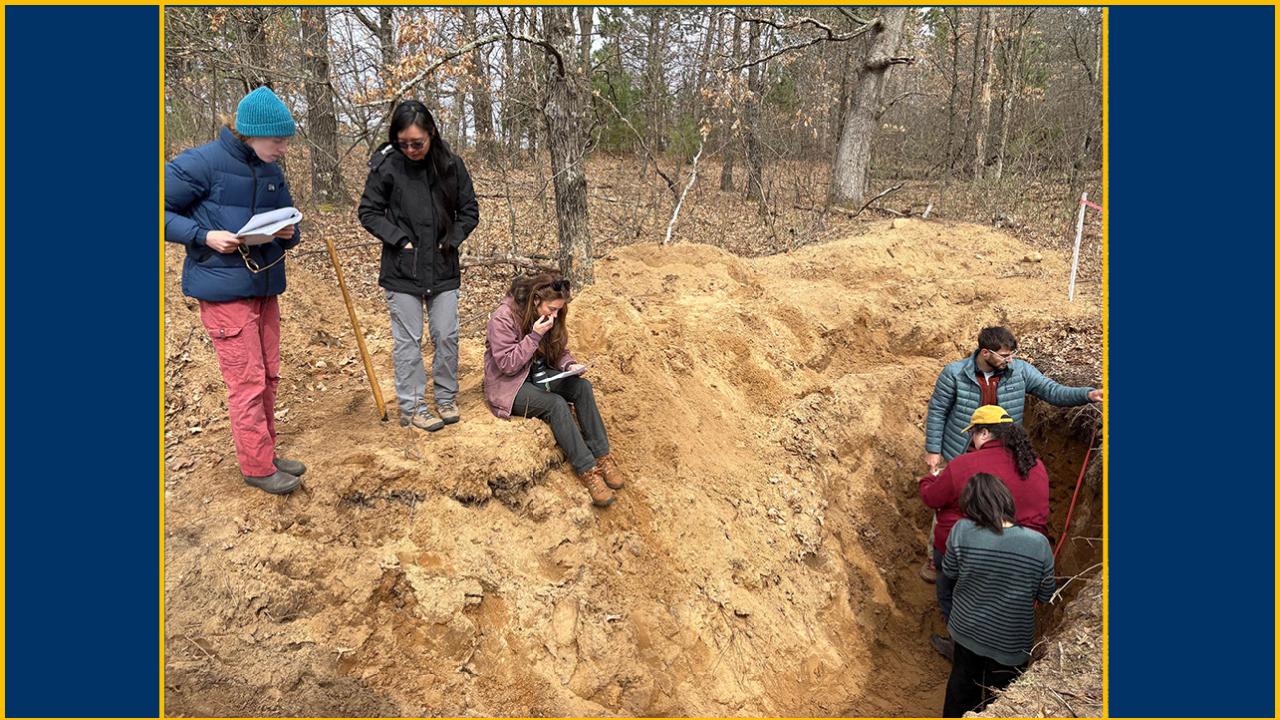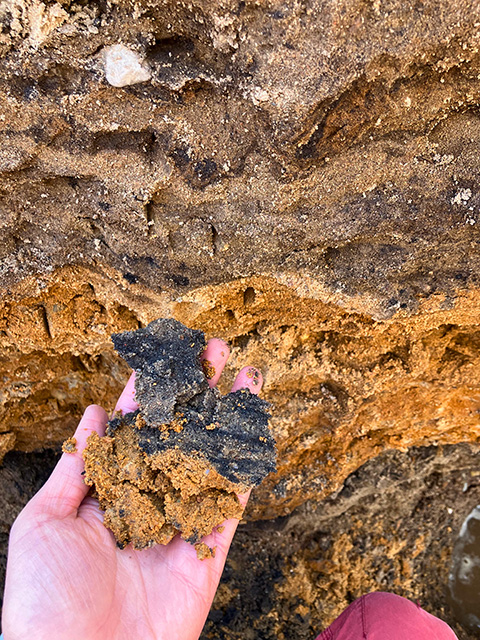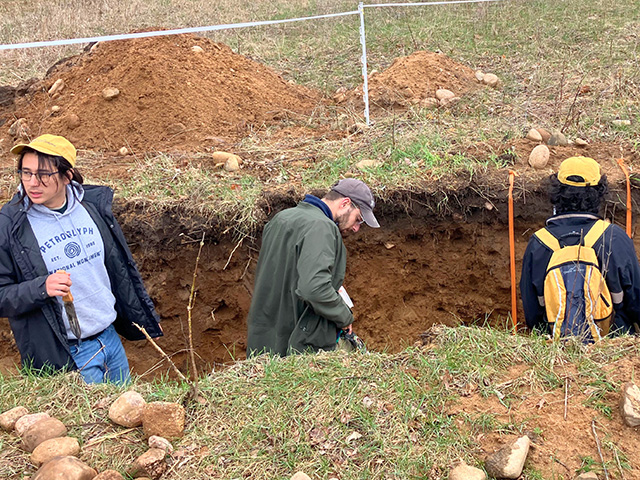
Beech co-leads historic team at national soil conference
Foundational relationship between plants and soil, grad student notes
Graduate student Ava-Rose Beech co-led her undergraduate team through the trenches of a national soil judging conference in a first for the UC Davis Department of Plant Sciences.
Beech is a Ph.D. student in the lab of Leslie Roche and a member of the graduate group in ecology. She and three other graduate students from the College of Agriculture and Environmental Sciences coached seven undergrads in the contest. This is the first time a grad student from the department helped lead a team at this contest.

“It was an incredible learning experience and very rewarding for all of us, students and coaches!” Beech said. Roche, a professor of Cooperative Extension in the department, called the achievement “outstanding” and “a great opportunity” for student-led, cross-unit interactions in the college.
The 2025 National Collegiate Soil Judging Contest invited undergraduate students from across the country to test their knowledge of soil individually and in teams. The contest is hosted in Stevens Point, Wisc., by the University of Wisconsin.
The UC Davis team tied for fifth place in the group soils judging category, out of 27 teams from competing universities.
Beech noted the linkages between plant and soil sciences: Plants depend on the soils beneath them. Soil judging, in particular, draws from multiple disciplines to describe and classify soils, understand soil formation, and interpret characteristics of the larger landscape. Experience in soil judging is useful for many careers including natural resource conservation, hydrology, biology, land-use planning and more, Beech explained.
The contest also highlights the interdisciplinary nature of both plant and soil science and the diversity of interests among the team members, Beech wrote.
The college’s participation in the National Collegiate Soil Judging Contest began four years ago, fueled by the passion of two students in the soils and biogeochemistry graduate group, which is housed in the Department of Land, Air and Water Resources. Other grad students co-leading this year’s team were Adolfo Coyotl, Tsz Fai “Connie” Wong and Jane Fudyma, all Ph.D. candidates in LAWR.
“It’s an incredible learning experience for students from any discipline,” Beech wrote. “Our hope as graduate student coaches is that this activity inspires undergraduates to develop a deeper appreciation for the ground beneath our feet and the countless ways in which soils shape our world every day!”
Undergrads overcame time, tempest
The team of undergrads faced many obstacles during the event.
“We definitely felt like one of the underdogs,” said teammate Patric Murphy. “Some of the schools have been there every year for the last, like, 40 years or so.”
Student Linh Le added, “The UC Davis Soil Judging team is relatively new and has never competed in nationals before, so we did not have the same time and resources to prepare that many of our competing teams were granted.”
“Stevens Point is a region heavily shaped by glacial outwash,” Beech explained. “Our team had the opportunity to explore this landscape carved by glaciers, full of soil features and characteristics that were unlike anything we get to see in California.”
The team only had a few days to get used to these unfamiliar soils. During that time, they studied the soils while battered by rain, wind and even a tornado warning.

Team member Max Adams remarked on the differences in the soils between the two states. “I could barely tell the difference in colors and texture in the rain,” he wrote. “I was just used to California soils and doing analysis with dry soils.”
“These soils are predominantly very sandy and well-drained,” added Beech. “While ideal for crops like potatoes, their low water-holding capacity means they require thoughtful management to prevent erosion and maintain soil moisture.”
“It was hard to work in rain and cold weather,” remarked team member Sandra Villegas.
The time difference between California and Wisconsin also weathered the group, as the students woke up at 6 a.m. daily local time to train in their new environment.
“It was difficult getting up before seven in the morning with jet lag and working in the pits under rainy weather with the threat of ticks,” said teammate Xincheng “Sam” Yu. “But I managed it by getting a cup of warm coffee, a nice brunch and a nap.”
Despite the challenges, this new environment animated the team members. “The most exciting moments were when I was able to touch and observe the unique soils and other geologic forms!” said Le.
“They showed remarkable perseverance, focus and teamwork,” Beech commented.
“I was honestly stunned when I heard our school had tied for fifth,” Adams said. “I was so proud of our team to receive that award and represent UC Davis in a national competition that we were underdogs in.”
Beech agreed. “We are incredibly proud of their performance. Congratulations to all team members on a job well done!”
- Trina Kleist contributed to this story.
Media Resources
- Trina Kleist, UC Davis Department of Plant Sciences, tkleist@ucdavis.edu, (530) 754-6148 or (530) 601-6846.
